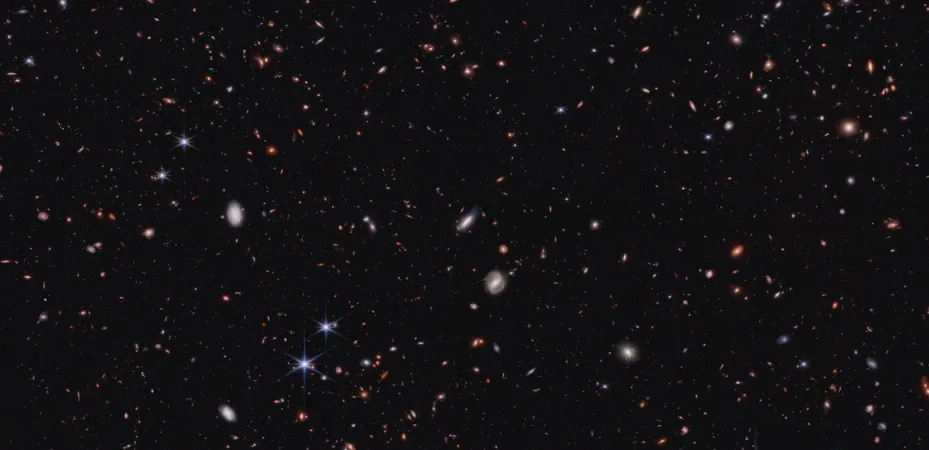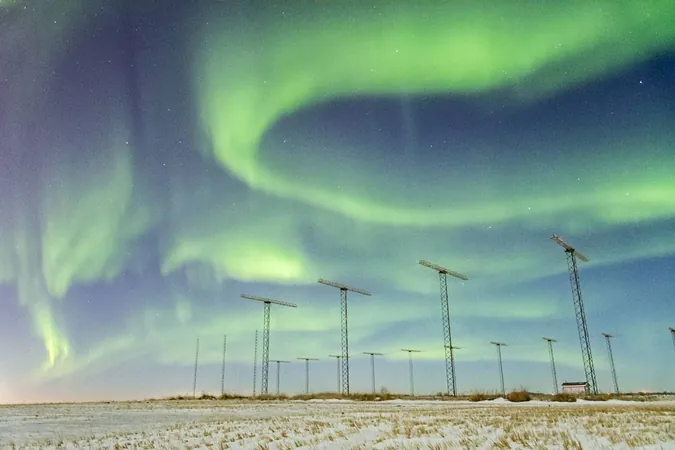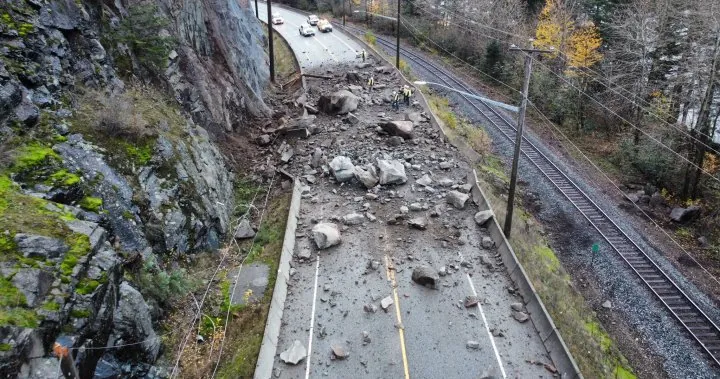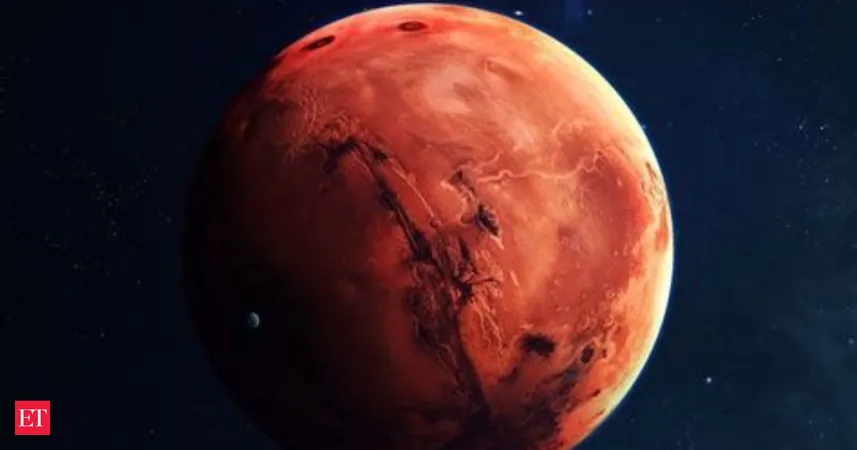
Shocking Discoveries: From Cold Dark Matter Crisis to Revolutionary Ideas in Biology and Minimizing Earthquakes from Fracking!
2024-11-16
Author: Benjamin
Shocking Discoveries: From Cold Dark Matter Crisis to Revolutionary Ideas in Biology and Minimizing Earthquakes from Fracking!
This week, a series of groundbreaking research findings have emerged, shaking the foundations of our understanding of the universe, biology, and even seismic activity linked to fracking. Scientists made significant strides, exploring the possibilities of intelligent life beyond Earth, unveiling secrets of ancient meteorites from Mars, and revealing crucial findings about our evolutionary past.
Cold Dark Matter's Dilemma?
Traditionally, the Cold Dark Matter (CDM) theory posited that galaxies formed slowly in the early universe, leading astronomers to expect to observe dim, inconspicuous galaxies when they peered back into time. However, the James Webb Space Telescope (JWST), launched in 2021, has challenged these assumptions. Instead of faint blobs, JWST has discovered large, brightly illuminated galaxies from the dawn of time, dramatically questioning CDM's long-held theories.
Astrophysicist Stacy McGaugh of Case Western Reserve University has highlighted that the discrepancies observed strongly support Modified Newtonian Dynamics (MOND). This alternative theory, which anticipated that large galactic structures could form rapidly, is gaining traction. However, not all researchers are convinced, as some recent studies suggest that many of these ancient galaxies may be appearing more massive due to bright accretion disks around their central black holes.
The ongoing debate raises essential questions: Are our current models of galaxy formation fundamentally flawed? Only time and further observations will tell!
Revolutionizing Biology: The 'Holobiont' Perspective
In an exciting shift for the field of biology, researchers are advocating for a new framework known as "holobiont biology." Instead of viewing organisms as isolated entities, this paradigm emphasizes the interdependence of hosts and the multitude of microbial communities that thrive within them. This research movement, recently detailed in the journal Science, could reshape our understanding of evolution and health.
Seth Bordenstein, a prominent voice in this field, notes that the influence of microbes on biological traits can sometimes surpass that of an organism's own genetics. Findings indicate that microbial interactions may play a significant role in conditions ranging from human colon cancer to metabolic health. This holistic view not only bolsters our understanding of life’s complexities but paves the way for new treatments and health strategies.
Fracking and Earthquakes: Turning the Tide
As the oil and gas industries continue to adapt hydraulic fracturing technologies, they have been met with the unintended consequence of increased seismic activity. Accidental earthquakes linked to fracking have raised concerns nationwide, particularly in states like Oklahoma, where there has been a shocking uptick in seismic events over the last two decades.
However, new research from the U.S. Geological Survey offers hope for mitigating these risks. By implementing measures such as cementing injection wells and reducing wastewater volumes, researchers have observed a decline in earthquake activity correlating with these practices. Robert Skoumal from the USGS emphasizes that an understanding of injection depth can be key in managing seismic risk in various geological basins.
As we continue to delve deeper into the cosmic mysteries, biological intricacies, and earth science challenges, these findings not only spark curiosity but also hold the potential for significant advancements in multiple fields. Stay tuned for more breakthroughs that just might change everything we thought we knew!









 Brasil (PT)
Brasil (PT)
 Canada (EN)
Canada (EN)
 Chile (ES)
Chile (ES)
 España (ES)
España (ES)
 France (FR)
France (FR)
 Hong Kong (EN)
Hong Kong (EN)
 Italia (IT)
Italia (IT)
 日本 (JA)
日本 (JA)
 Magyarország (HU)
Magyarország (HU)
 Norge (NO)
Norge (NO)
 Polska (PL)
Polska (PL)
 Schweiz (DE)
Schweiz (DE)
 Singapore (EN)
Singapore (EN)
 Sverige (SV)
Sverige (SV)
 Suomi (FI)
Suomi (FI)
 Türkiye (TR)
Türkiye (TR)